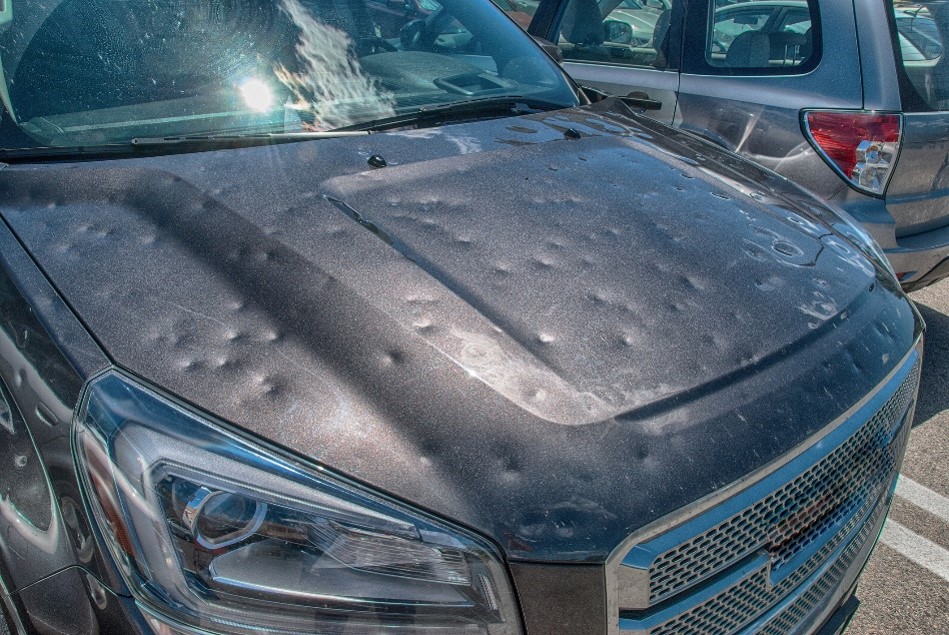Hailstorms aren’t just a concern for individual vehicle owners; they represent a significant risk for car manufacturers. When hailstorms strike, they can cause millions of dollars in damage to vehicles stored in large outdoor lots, disrupting production, impacting inventory, and even delaying deliveries. For car manufacturers, protecting assets from these unpredictable weather events is essential, as hail damage affects both the bottom line and customer satisfaction.
The Scope of Hail Damage for Car Manufacturers
Manufacturing facilities and large inventory lots are often filled with thousands of vehicles in various stages of production and readiness for shipment. When hail strikes, the damage can be extensive, with dents and broken windows appearing across hundreds or even thousands of vehicles in a single storm. In 2020, a hailstorm in Texas caused over $30 million in damage to a single car manufacturer’s inventory, illustrating the severe financial impact that a single storm can have.
The most common types of hail damage affecting car manufacturers include:
- Dented Body Panels: Vehicles waiting in outdoor lots are vulnerable to hail, which can leave large dents across hoods, roofs, and doors, sometimes even damaging structural components.
- Shattered and Cracked Windows: High-impact hailstones can shatter windshields and side windows, creating safety concerns and driving up repair costs.
- Damaged Paint and Trim: Hail impact can cause chipping and scratching, which requires repainting or full panel replacement to restore the vehicle’s appearance and durability.
Consequences of Hail Damage for Manufacturers
Hailstorms can disrupt car manufacturers in numerous ways, affecting operations, inventory, and profitability. Some of the biggest challenges include:
- High Repair Costs: Repairing hail-damaged vehicles on a large scale is both costly and time-consuming. Each vehicle must be inspected individually, and even small dents can require repairs that slow down production and delay delivery schedules. Common solutions like Paintless Dent Repair (PDR) are effective for minor dents, but widespread damage often requires full panel replacements.
- Production Delays and Inventory Shortages: Hail damage disrupts the production and delivery pipeline. Cars must be repaired before they can be sent to dealerships, causing delays and, in some cases, leading to inventory shortages. This can impact dealerships and customers who are awaiting new vehicles, potentially driving customers to competitors.
- Insurance Premiums and Claims: Manufacturers often carry insurance policies that cover hail damage to inventory, but the frequency and cost of claims can lead to rising premiums. In some cases, insurers may require more proactive measures, such as installing covered parking or investing in hail protection technology, adding further expenses to the manufacturer’s budget.
- Impact on Brand Reputation: When customers experience delays in receiving new vehicles or hear about damaged inventory, it can create concerns about product quality. Car manufacturers take great care to ensure vehicles meet quality standards, and hail-damaged cars, even if fully repaired, may lead to customer apprehension and potential dissatisfaction.
If you are a manufacturer and require an efficient solution, feel free to contact us. The team at UCM Global are here to help you.

